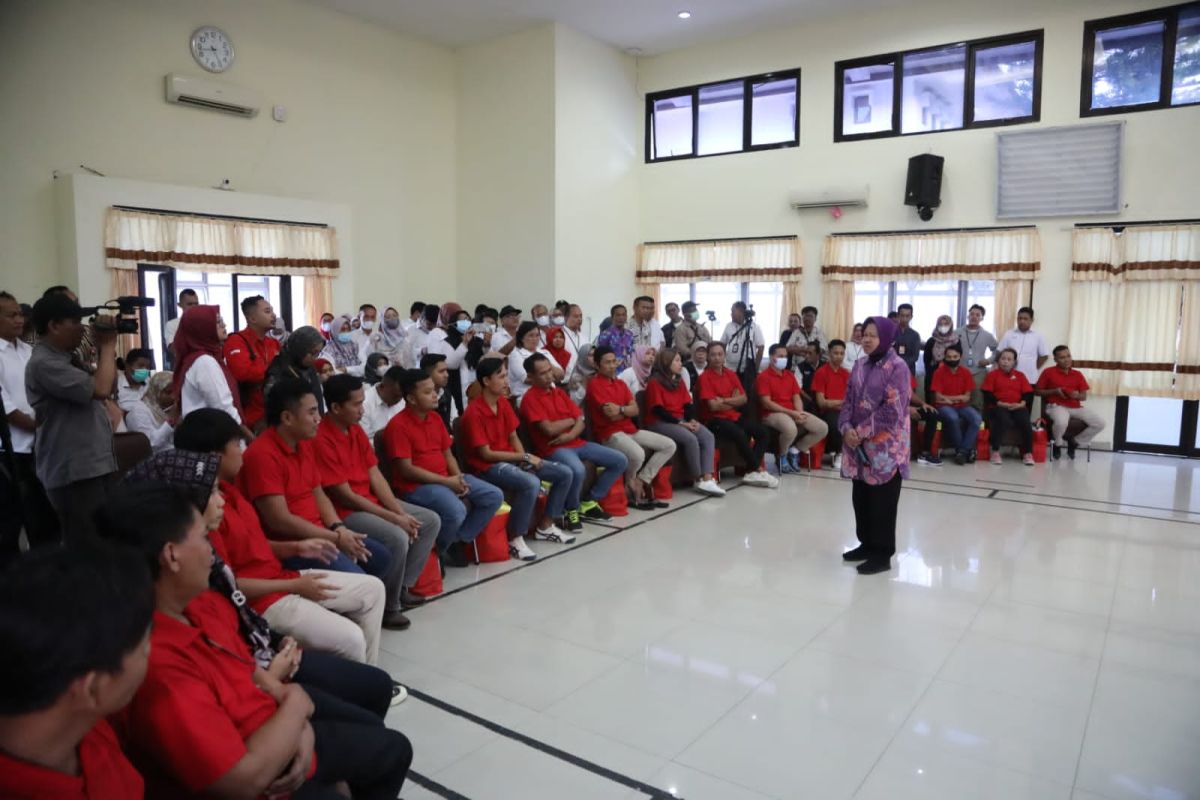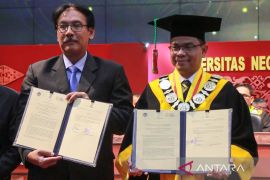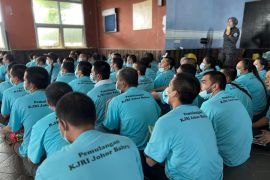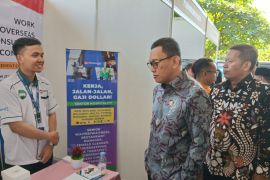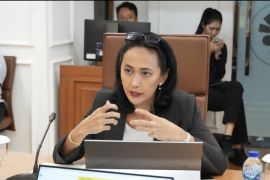After working hard in Ipoh, Perak, Malaysia for four years, Wahyu, as she is also called, was abandoned along with 50 other migrant workers in the wilderness in Sungai Pasir Kapas area, Dumai, Riau, by the brokers who had hired her.
The 45-year-old admitted that she took the illegal route by working without legal documentation as a migrant worker. For this reason, no party was fully responsible for their return.
Wahyu and the other migrant workers were placed in a hut in the middle of a forest, with no food, drink, or survival necessities. Some were even accompanied by babies and children, or were pregnant.
To make their escape, they trekked out of the forest early in the morning until they managed to find a small shop to buy food and drinks.
At the shop, the workers met law enforcement officers who immediately provided protection assistance until they returned home safely.
The incident made her reconsider her plan to return to work abroad with the help of illegal labor brokers. She said this was her first time working illegally.
“I do not want to come back again. I was afraid and traumatized by being lied to. What will happen if I die there?” she said.
Therefore, she has decided to return to being a housewife and be with her husband and two children. She is currently helping her husband in the banana and corn fields.
When she got an opportunity to meet with the Minister of Social Affairs, Tri Rismaharini, at Kupang Efata Sentra, East Nusa Tenggara (NTT), on July 12, 2023, she expressed her desire to open a basic food kiosk in front of her house.
Besides Wahyu, 21 other former PMIs from NTT shared their hopes of raising pigs and goats, growing vegetables, or opening a workshop, or taking up sewing work instead of returning back to their jobs as migrant workers. Their requests were immediately granted by Minister Rismaharini.
“Thank you Minister Rismaharini, for the assistance. With our bitter experience in the past, we will not go back abroad and stay here instead,” Wahyu said.
Of the 22 victims of human trafficking practice (TPPO) at the event, seven were victims of TPPO in Rokan Hilir District, Riau. Three of them came from Malaka District, one from North Central Timor District, two from Belu District, and one from Ende.
Meanwhile, the other 15 were victims of TPPO in North Central Timor.
To handle the victims of TPPO, the Social Affairs Ministry is working closely with related parties such as law enforcement officials and the local government to organize economic empowerment programs for ex-migrant workers.
Minister Rismaharini is aiming to empower the victims by providing them with entrepreneurship skills so that they do not get lured back into illegal jobs abroad.
Before creating an empowerment program for ex-Indonesian migrant workers in NTT, the minister studied the geographical and sociological conditions in their living areas to map out what type of business opportunities they could explore to derive economic benefit.
“We already start the mapping and check which area is suitable to plant vegetables, rice, and corn. We are still discussing it with the local government,” she informed.
The migrant workers from NTT are not the only ones to have experienced human trafficking. At least 18 migrant workers from Yogyakarta Province also fell victim to it.
Lured with the promise of work abroad, they were forced to deposit money with their broker, which put them in debt.
For four months, they were taken and moved around with perpetrators, an experience that left them suffering from psychological disorders such as severe depression and anxiety.
The Ministry of Social Affairs has provided psychological counseling, guidance, and health services to them. The minister has also held a direct dialogue with the victims to provide them with motivation and encourage them to build a business.
Apart from that, the Yogyakarta Social Welfare Education and Training Center (BBPPKS) has also provided relaxation facilities involving activities such as making pet cages for geckos and woven bags from plastic.
The vocational activities are expected to help them open their own business after they return to their families.
Separately, President Joko Widodo has emphasized that the government is deploying all elements of the state such as the National Police, the Indonesian Defense Forces (TNI), and other government officials to handle TPPO.
According to a report by the Indonesian Migrant Workers’ Protection Agency (BP2MI), the number of dead migrant workers due to TPPO abroad has been recorded at 1,900 per year.
Human trafficking has also become a serious concern in other ASEAN countries. Indonesia has been asked to take a leadership position in eradicating human trafficking, which is considered to be disruptive to the life of citizens and a transnational crime.
The efforts made by the Social Affairs Ministry to assist former migrant workers who have faced trafficking have ranged from psychological strengthening to providing entrepreneurial training and assistance, reflecting that the state is present and responsive in handling the problem.
Related news: Bali tightens departure of migrant worker to prevent human trafficking
Related news: Officials probe role of Italian national in people smuggling
Editor: Rahmad Nasution
Copyright © ANTARA 2023
